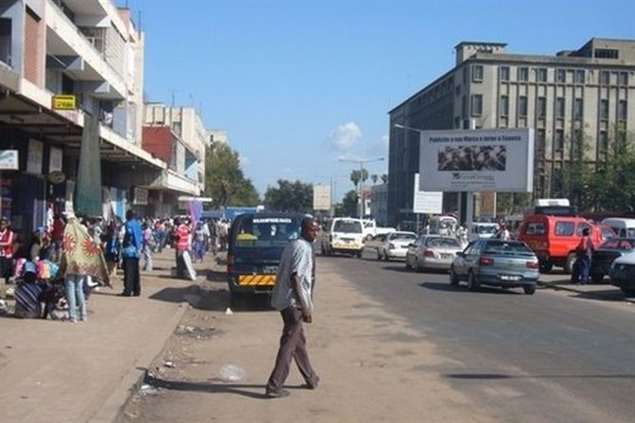Mozambique: Álvaro Massingue elected president of CTA - Watch
Unions suggest two wage rises in Mozambique this year due to high inflation rate – AIM report

A Bola (File photo) / Maputo
Mozambique’s main trade union federation, the OTM (Mozambican Workers’ Organisation) has suggested that, if the country’s current financial situation prevails, then the minimum wage should be increased twice this year rather than once.
OTM General Secretary Alexandre Munguambe made this call public on Friday, during a meeting of the Labour Consultative Commission (CCT), the tripartite negotiating forum between the government, the unions, and the employers’ organizations.
The standard practice has been for the CCT to agree on a set of minimum wages by sector, which the government then puts into law. The new wages take effect as from 1 April each year. But the OTM is now suggesting that in times of high inflation, wages should be adjusted more frequently.
“We would like to recall that in the past, when annual inflation reached two digits, the minimum wage was increased twice a year”, said Munguambe. “If the current situation continues, there is every reason to return to this practice”.
In 2016, inflation sharply deteriorated, largely because of the depreciation of the Mozambican currency, the metical. According to the National Statistics Institute (INE), based on the consumer price indices of the three largest cities (Maputo, Nampula and Beira), inflation for the year reached 25.27 per cent.
Munguambe stressed that workers’ living standards had tumbled last year. “2016 was characterized by politico-military instability, natural disasters, a financial crisis, depreciation of the metical and unsustainable foreign debts”, he said. “These factors raised the cost of living to unbearable levels, and worsened the poverty of the majority of Mozambicans”.
The purchasing power of workers earning low wages had fallen sharply, he said. On top of this came increasing unemployment, as companies laid off staff. “Lack of jobs for people of economically active age, plus layoffs, worries us, because unemployment worsens crime”, said Munguambe.
Under these circumstances, a wage rise was imperative. “Wages must be increased as from 1 April”, said Munguambe. “It can’t be the workers who pay for the economic crisis”.

Labour Minister Vitoria Diogo, who chairs the CCT, gave a much rosier picture, claiming that 277,647jobs were created in 2016. 106,749 citizens, mostly young, had attended professional training courses, thus increasing their chances of obtaining good jobs.
She urged the negotiators to act “with a high sense of responsibility, always bearing in mind that more and better jobs, maintaining jobs, and improving the living standards of workers and their families, and the prosperity of enterprises, are, taken together, our objectives – but they are attained gradually and as we increase the productivity and profitability of the companies”.
Workers and employers needed each other, she claimed, arguing that “there are no winners and no losers. What must guide us is the principle of good faith”.
Diogo urged the negotiating teams to ensure that the discussions on raising the minimum wage “take place in an environment of fraternity, calm, thoughtful consideration and discretion, so that we may find, without extreme or radicalized positions, a fair balance between the need for a wage adjustment, the maintenance and creation of jobs, and the sustainability of the companies”.













Leave a Reply
Be the First to Comment!
You must be logged in to post a comment.
You must be logged in to post a comment.